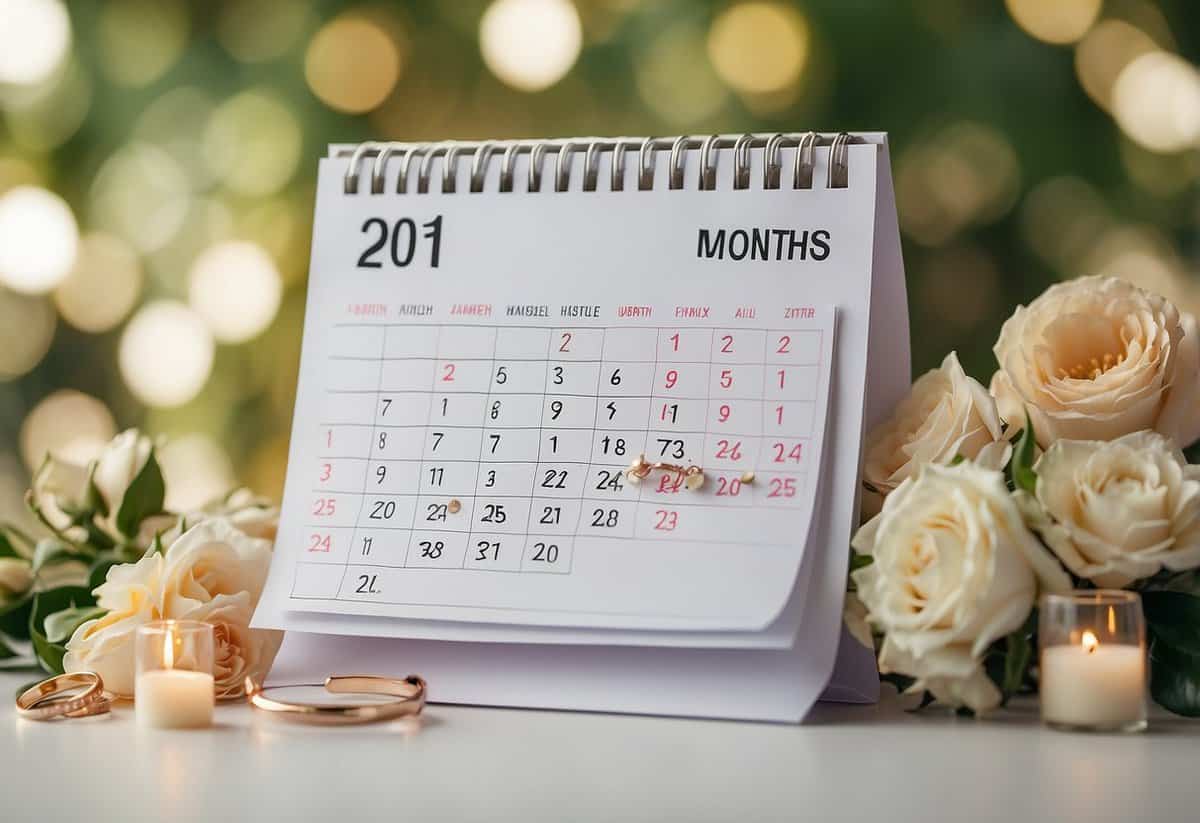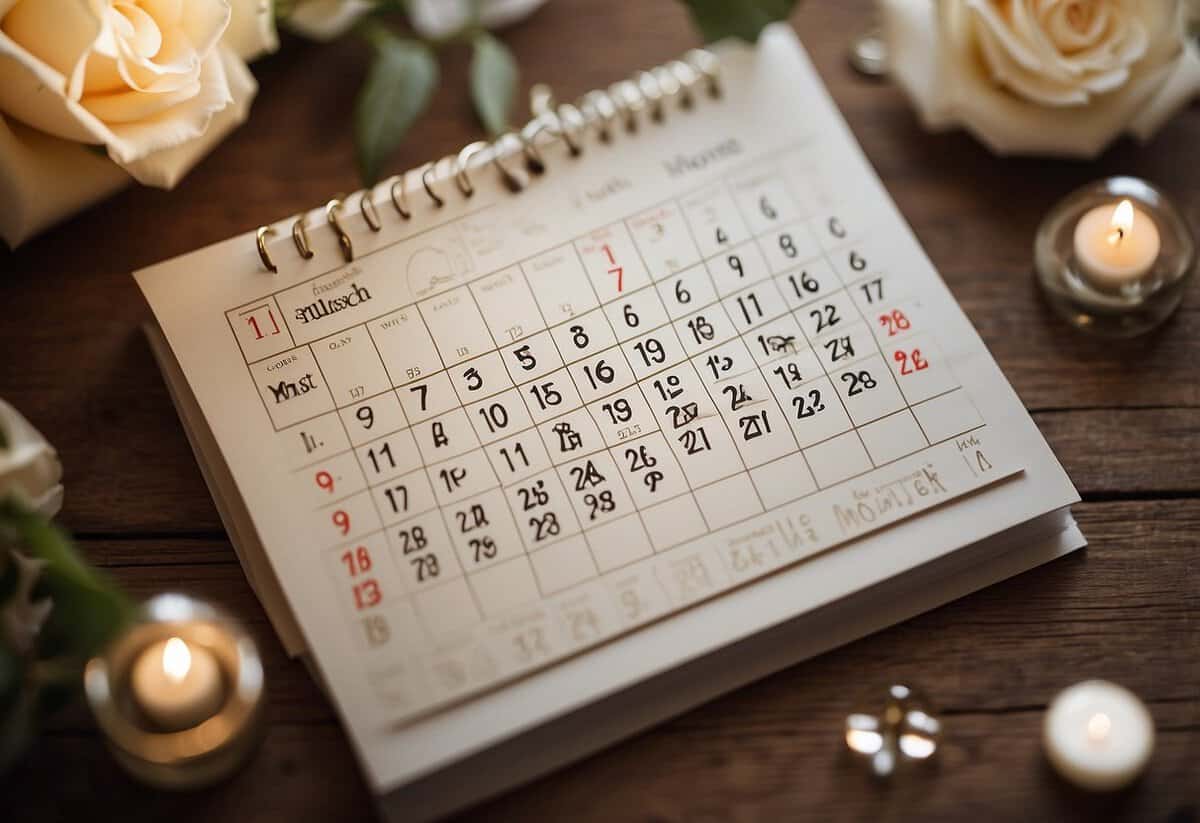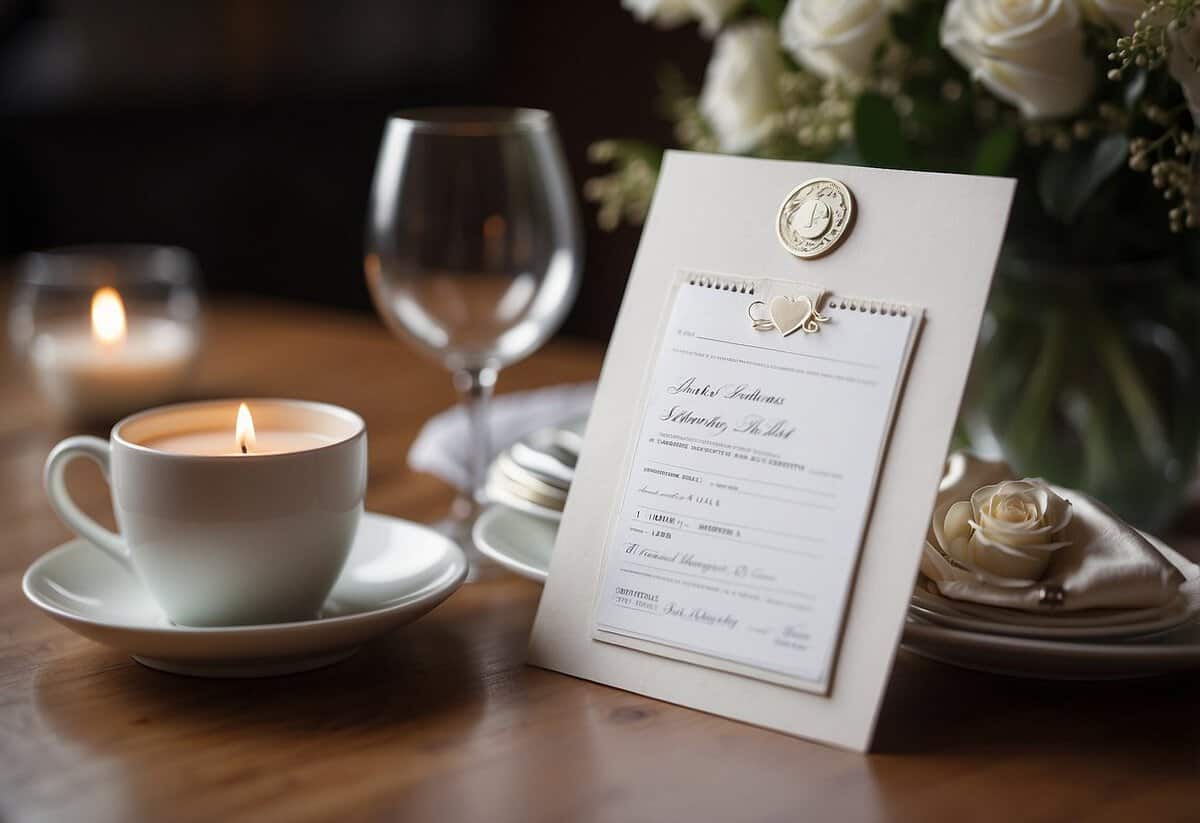Is 3 Months Too Early for Wedding Invites? Timing Tips for Your Big Day
Planning your wedding can be both an exciting and stressful time. Among the many decisions you need to make, one question that often comes up is the timing of sending out your wedding invitations. Three months is not too early to send your wedding invites. In fact, this timeline can give your guests ample time to mark their calendars and make necessary arrangements.

Sending your invites three months in advance helps ensure that everyone has plenty of notice. This is especially important if you’re planning a destination wedding or have many out-of-town guests who need to arrange travel and accommodations. Starting early can also reduce your stress later on.
Just remember, while three months is generally appropriate, each wedding is unique. Consider your specific circumstances and the needs of your guests when deciding on the best timing for your invites.
Understanding Wedding Invitation Timing

For planning a wedding, timing is essential to ensure that your guests can make arrangements to attend. Key elements include sending ‘save-the-dates‘ and understanding the best timeline for invitations.
The Role of ‘Save-the-Dates’ and Invitation Timeline
Sending save-the-date cards is an important early step. Typically, these are sent out 6-12 months before the wedding. This is especially helpful for destination weddings, where guests need more time to plan travel and accommodations.
When it comes to the main wedding invitations, aim to mail them 6-8 weeks before the wedding. This gives guests enough time to RSVP and adjust their schedules. For destination weddings, send invitations 8-10 weeks in advance to accommodate extra planning needs.
Factors Affecting When to Send Invitations
Several factors impact the optimal timing for sending out wedding invitations. The wedding date itself plays a big role. If your wedding falls during a busy season, such as summer or holiday periods, consider sending out your invitations towards the earlier end of the timeline.
Guest location is another factor. For instance, inviting guests who live far away or internationally? You might want to send your invitations sooner to allow time for travel arrangements.
Finally, think about your venue and any specific deadlines they might have for final guest counts. This can affect when you need to receive RSVPs, and therefore, when to send out your invitations to ensure you get responses in time.
For more details on exact timings, refer to helpful resources like The Knot and Wedding Forward.
Etiquette and Best Practices

When planning your wedding, it’s important to ensure that your invitations follow proper etiquette. This helps to make the process smooth for you and your guests.
Wedding Invitation Etiquette for Different Types of Weddings
For local weddings, send your invitations about six to eight weeks in advance. This gives your guests enough time to RSVP and make necessary arrangements. If you’re having a destination wedding, consider sending invitations eight to ten weeks ahead. Your guests will need extra time to book travel and accommodations.
Include both the ceremony and reception details on the invitation. If you’re inviting some guests only to the reception, send a separate invitation. Use simple and clear wording, avoiding abbreviations. Make sure to address all envelopes properly, using full names and correct titles.
Addressing RSVPs and Deadlines
Request RSVPs at least one month before the wedding date. This allows you time to finalize seating and catering plans. Provide a clear deadline for RSVPs and include a pre-addressed, stamped envelope to make it easy for guests to respond.
Consider setting up an online RSVP option to accommodate guests who prefer digital communication. Remind guests that an RSVP is crucial for planning purposes. Follow up with those who haven’t responded a week before the deadline. This ensures you have an accurate headcount for your big day.
Guest Considerations

When deciding if sending wedding invitations three months ahead is too early, think about how it might affect your guests. Their travel plans and accommodation needs will be top priorities.
Accommodation and Travel Plans for Guests
Guests will appreciate having enough time to book their travel and accommodation. If you’re planning a local wedding, it gives people sufficient notice to schedule their plans.
For a destination wedding, guests need time to book flights and a place to stay. Sending your invites early helps ensure they can find affordable options.
Local Weddings:
- Shorter booking time
- Easier travel logistics
Destination Weddings:
- Longer booking time
- More complex travel arrangements
International and Out-of-Town Attendees
If you have many international or out-of-town guests, sending invites three months ahead might be cutting it close. These guests need ample time to arrange flights, visas, and accommodations.
International guests often face visa processing times, which vary by country. Out-of-town guests also need to arrange time off work and coordinate travel.
International Guests:
- Visa applications
- Longer travel times
Out-of-Town Guests:
- Booking travel
- Arranging accommodation
By sending invitations early, you make it easier for all guests to plan their trip, ensuring more friends and family can attend your special day.
Final Steps Before the Big Day

As the wedding day approaches, it’s important to finalize last-minute details. This includes confirming the guest list, creating a seating chart, and ensuring everyone knows the dress code and ceremony details.
Finalizing Headcount and Seating Arrangements
You need to confirm the final headcount for your wedding. Check that all RSVPs are accounted for and follow up with any guests who haven’t responded. This ensures that your caterer receives an accurate number and you avoid extra costs.
Creating a seating chart is next. Group your guests based on relationships and common interests. Mixing friends and family can lead to a fun atmosphere. Remember to consider anyone with special needs, like those requiring wheelchair access.
The Last Details: Dress Code, Ceremony, and Postage
Make sure all wedding guests are aware of the dress code. Specify if it’s formal, semi-formal, or casual to avoid confusion. Clarify any unique requirements such as themed attire or specific colors.
Confirm all ceremony details with your officiant. Make sure everyone knows the order of events and any special traditions you plan to include. Also, double-check the timing and logistics of your venue.
Lastly, ensure you have enough postage for mailing out any last-minute invites or thank-you cards. Think about international guests who may need extra days for their mail to arrive on time.




